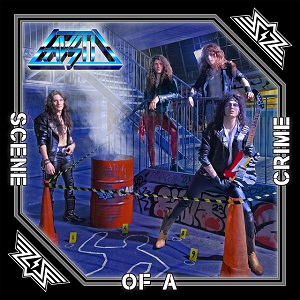DEAFHEAVEN - New Bermuda
October 2, 2015, 9 years ago
(Anti)

So much vitriol has been spit, sometimes literally, in Deafheaven’s direction that it’s become almost comical: to say that Deafheaven elicits polarized positions is a severe understatement. Instead of contributing to the rancour, let’s leave the issue of Deafheaven’s credibility and currency within the black metal scene to others, and let's actually discuss New Bermuda as an artistic statement. But, before we do that, let’s also remind ourselves of the following quote from Deafheaven guitar player Kerry McCoy - the sentiment expressed with a shrug - during a 2014 interview:
“At the end of the day, we’re just doing our thing. We’ve been doing our thing for years – if people think we’re inventing this new thing, or that we’re destroying metal, we’re doing neither. We’re just dudes who are playing tunes. If you like it, you like it. If you don’t, you don’t.”
Deafheaven’s records, despite the controversy that surrounds them, are almost benign, in a sense: like so many black metal bands, these San Francisco residents follow the second wave black metal template closely. In fact, the only technical/musical element that differentiates Deafheaven from so much of the Norwegian-inspired black metal we’ve been listening to and absorbing over the last 25 years is that Deafheaven’s quiet passages usually end in major keys instead of minor keys. The tracks on New Bermuda, generally, follow pre-established forms closely, even incorporating some of the epic, summit-like moments Emperor originally gave life (death?) to. If you didn’t know that it was New Bermuda playing, when “Brought To The Water”’s melancholic leads began their ascent, you’d ask what isolated, forest-surrounded region of Scandinavia this record had been written in.
Like most of this band’s catalogue, New Bermuda is inspired. Highlights “Brought To The Water” and “Come Back” are aggressive and forlorn tracks, these songs consistently ominous and hostile. The bell tolls that are part of “Come Back”’s intro are especially menacing, and the band follows them up with a series of blasts that don’t let up until the very 1991 central riff makes itself known. Like the two aforementioned tracks, New Bermuda as a whole dissertates in far darker ways than 2013 breakout album Sunbather would have you expecting. Where Sunbather felt hopeful in many of its moments, New Bermuda sounds like the cynicism and impending darkness that happen after the fall. Even New Bermuda’s dark, black metal-inspired cover is a signal that the optimism of Sunbather is a thing of the past. Deafheaven is now, more than ever, speaking the underground’s language.











